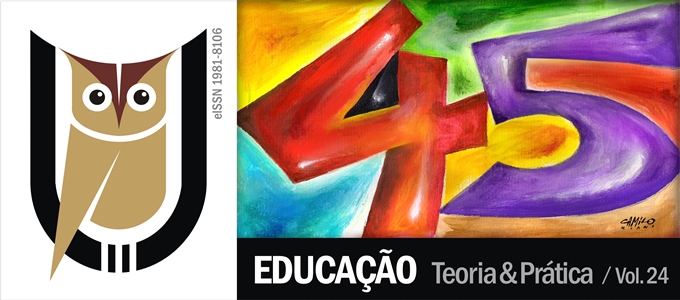Percepciones de profesores/as sobre las diferencias de género en la educación en sexualidad en escuelas portuguesas
DOI:
https://doi.org/10.18675/1981-8106.vol24.n45.p23-39Palabras clave:
Género, identidades de género, relações de poder, professores, alunosResumen
Se argumenta que, de acuerdo con las percepciones de los profesores/as, los/las estudiantes usan activamente el material de educación en sexualidad (S), así como los aspectos de la vida en la escuela, como recursos simbólicos para construir su identidad de género y sus relaciones de poder. En este sentido, se aplicó una entrevista semiestructurada a una muestra intencional de profesores/as, que dan clase entre el 7º y el 12º años de escolaridad y ya desarrollaron proyectos o actividades de ES (N=87), para enfocar, entre otros aspectos, sus percepciones sobre las características de género que afectan la respuesta de los estudiantes en la ES, teniendo como objetivo conocer sus percepciones sobre: i) diferencias de género en las reacciones a los temas/problemas de la ES; ii) naturaleza de las interacciones de género durante la ES. De acuerdo con el discurso de la mayoría de los/las profesores/as, durante la ES los chicos intentaron demostrar su masculinidad mostrándose diferentes de las chicas y distanciándose de todos los asuntos relacionados con la sexualidad de las mujeres, desvalorando y alejándose de todo lo que es femenino lo que implicó, a veces, depreciar e insultar a las chicas. Las alumnas reaccionaron positivamente porque la ES mantiene y apoya su sentido de identidad de género y lo que los códigos de género les prescriben. Estos resultados revelan que es esencial trabajar en la formación de profesores/as la relación entre género, sexualidad y para poder estar capacitados para reflexionar críticamente sobre las reacciones de los/las alumnos/as en el sentido de promover la equidad de género.Descargas
Archivos adicionales
Publicado
Cómo citar
Número
Sección
Licencia
Os Autores que publicam nessa revista concordam com os seguintes termos:
a) Os autores cedem os direitos autorais à revista, com o trabalho simultaneamente licenciado sob a Creative Commons Attribution License que permite o compartilhamento do trabalho com reconhecimento da sua autoria e publicação nesta revista.
b) A política adotada pela Comissão Editorial é a de ceder os direitos autorais somente após um período de 30 meses da data de publicação do artigo. Transcorrido esse tempo, os autores interessados em publicar o mesmo texto em outra obra devem encaminhar uma carta à Comissão Editorial solicitando a liberação de cessão dos direitos autorais e aguardar resposta.
c) Esta revista proporciona acesso público a todo o seu conteúdo, uma vez que isso permite uma maior visibilidade e alcance dos artigos e resenhas publicados. Para maiores informações sobre esta abordagem, visite Public Knowledge Project, projeto que desenvolveu este sistema para melhorar a qualidade acadêmica e pública da pesquisa, distribuindo o OJS assim como outros softwares de apoio ao sistema de publicação de acesso público a fontes acadêmicas. Os nomes e endereços de e-mail neste site serão usados exclusivamente para os propósitos da revista, não estando disponíveis para outros fins. This journal provides open any other party  Esta obra está licenciada sob uma Licença Creative Commons
Esta obra está licenciada sob uma Licença Creative Commons











